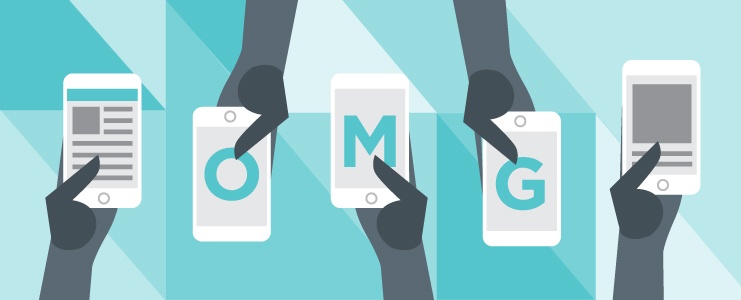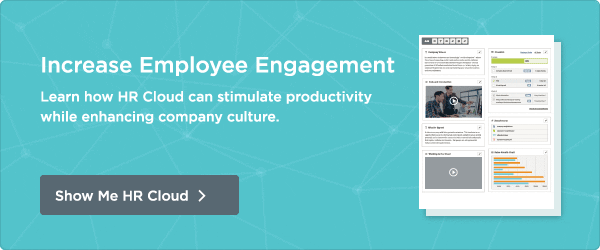

 Cut onboarding time
by 60%—here's the
Ultimate Checklist
that helped do it.
Cut onboarding time
by 60%—here's the
Ultimate Checklist
that helped do it.

According to a Gallup poll, only 32% of workers identify themselves as engaged employees, while 51% identify themselves as not engaged and 17% identify themselves as actively disengaged. HR managers tasked with the job of effecting change in this environment must turn to new methodologies to engage employees more fully. To this end, a growing trend in HR is consumerization.
What Is HR Consumerization?
Jeanne Meister, best-selling author and consultant for Fortune 1000 companies in the field of human resources, marketing, and corporate learning, keeps a close watch on mega globalization and social media trends, and how these impact the future of the workplace.
In her Forbes article, "Consumerization of HR: 10 Trends Companies Will Follow in 2016", Meister notes: "Consumerization of HR refers to creating a social, mobile, and consumer-style experience for employees inside the company."
Just as marketing seeks to optimize the customer experience to engage consumers with a brand or product, HR consumerization looks to engage employees more completely with the company culture. This involves more than simply using social media to recruit, onboard, and engage employees.
How Consumerization Impacts the Role of HR
In a Bersin by Deloitte report titled "10 Disruptive HR Technology Trends for 2016", several technologies that contribute to HR consumerization are discussed. These technologies enable employees to interact with HR functionality via their personal mobile devices, thereby enriching the employee experience overall.
Where once an employee had to access needed HR services via a fixed appointment with an HR representative or an educational program scheduled at the convenience of HR staff or other employees, HR technologies now exist that allow employees to use HR resources such as training courses, presentations, and interactive employment tools via mobile HR software on the device of their own choosing, and at a time and place convenient to them.
HR technology that allows for instant employee feedback and collaboration prompts greater employee engagement, thus boosting employee satisfaction and retention.
Consumerization Converts Employees into Brand Advocates
Creating a strong employee experience through the use of social media, online learning tools, employee feedback solicitation via engagement software, and employee collaboration strategies will likely do even more than improve employee engagement.
Borrowing another move from the marketing playbook, HR managers are discovering that employees can become powerful advocates for a company brand. Why is this so important?
According to the 2014 Edelman Trust Barometer, 52% of consumers trust an "average" employee more than the CEO of a company. That means that brand advocacy by your employees may be perceived as a weightier endorsement than your marketing message.
The potential is clear. Using technology to promote brand advocacy among your employees positions your company brand effectively, and helps you attract customers to your company and the right type of talent to your workforce.
According to the Edelman Trust Barometer report, 50% of employees share news about their company via their own social media account, and 58% believe that socially engaged employees are more likely to attract top talent to your company.
Happy employees become brand advocates via their personal social media accounts.
Consumerization Supports the Way People Work Today and Anticipates Tomorrow's Needs
According to a Randstad report, 47% of HR managers are including acquisition of independent contractors as part of their overall recruiting efforts. This trend follows the growing employee interest in maintaining a good work/life balance. It is estimated that by 2020, as much as 40% of the American workforce will be independent contractors or freelancers.
Emerging HR systems and technologies will help HR stay relevant as the world of work changes radically. Keeping employees engaged through consumerization will move HR into position to make a solid strategic contribution to a company's brand and culture, both internally and externally.

Keep Reading
Best Onboarding Practices for Manufacturing Companies: 15 Proven Tactics That Boost Retention
"Three simple changes to our onboarding process cut our 30-day turnover from 28% to 12%.
Equity in the Workplace: A Practical Guide to Building Fairness and Opportunity
Workplace equity shouldn't be an aspiration—it should be the foundation of how
7 Employee Relations Responsibilities That Transform Workplace Culture
Employee relations shapes how people experience work every single day. It's not just
Like What You Hear?
We'd love to chat with you more about how HR Cloud® can support your business's HR needs. Book Your Free Demo

Build a Culture of Recognition. Boost Engagement. Guaranteed.
Workmates empowers employees to stay informed, connected, and appreciated—whether they’re on the front line, in the office, or remote. Recognition drives 12x higher engagement.Trusted by industry leaders in every sector




Cut Onboarding Costs by 60%.
Take the confusion and follow-ups out of onboarding with automated workflows, digital forms, and structured portals—so new hires ramp faster 3X quicker.Trusted by industry leaders in every sector






